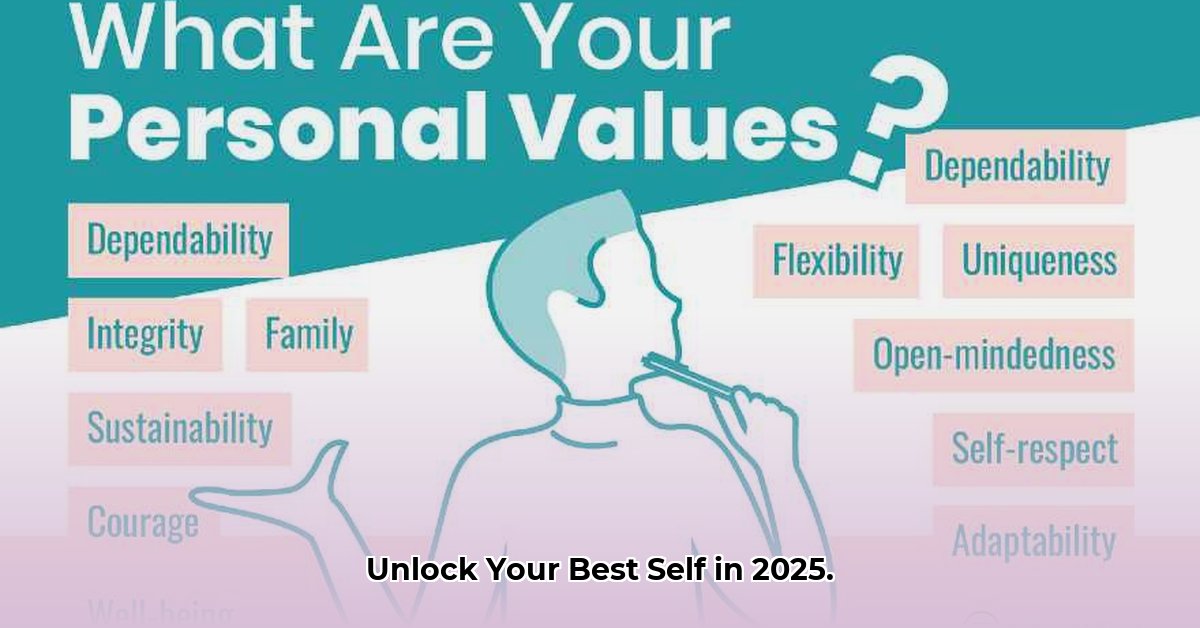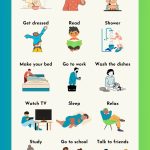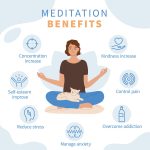Are you seeking to elevate your life? Personal growth seminars offer the promise of transformation, but the sheer number of options can feel overwhelming. This comprehensive review delves into the world of self-improvement, comparing leading seminars and guiding you toward the best choice for your unique needs. We’ll explore various seminar types – from immersive boot camps to introspective retreats – providing insights on what to expect, potential benefits, and how to maximize your investment. Whether you’re budget-conscious, time-constrained, or simply unsure where to start, this guide will empower you to make informed decisions and embark on a fulfilling journey of personal growth. For more options, check out these workshops.
Understanding Personal Growth Seminars: Charting Your Course to Self-Improvement
The self-help industry is experiencing unprecedented growth. More and more people are turning to personal growth seminars to improve their lives, but the abundance of choices – from intensive weekend workshops to flexible online courses – can be overwhelming. Let’s break down the landscape to help you navigate it effectively.
Exploring Diverse Approaches to Personal Growth Seminars
Personal growth seminars are not a one-size-fits-all solution. Consider them different routes to the summit of a mountain: some are steep and challenging, while others offer a more gradual ascent. Some focus on developing practical skills – communication, financial literacy, leadership – providing you with the tools to achieve specific goals. Think of this approach as climbing a mountain using established trails and reliable equipment; it’s highly focused on the climb itself.
Other seminar types emphasize inner exploration – uncovering hidden potential, overcoming limiting beliefs, and developing emotional intelligence—more like explorations into uncharted territory. You may discover completely new aspects of yourself during the process. The emphasis here is on the journey and experiencing the mountain from a new perspective.
For example, Tony Robbins’ events are known for their high energy, practical guidance, and focus on achieving rapid results. They emphasize quick, tangible progress, like a swift ascent via well-worn paths. Programs like the Landmark Forum, on the other hand, encourage you to examine your core beliefs and attitudes, aiming for a fundamental shift in your worldview. This represents a more contemplative, deliberate approach, akin to savoring the panoramic view from the mountaintop. Mindvalley, with its vast online presence, offers flexibility and a wide range of options, allowing you to tailor your route, pace, and equipment.
A Practical Guide to Choosing the Right Seminar for You
Ready to discover the ideal seminar to accelerate your personal growth? The following guide will help you make the best choice:
Step 1: Introspection and Goal Setting. What are your objectives? Do you want to acquire a specific skill, overcome a particular obstacle, or are you ready for an in-depth journey of self-discovery? Clearly articulating your “why” is essential. What challenges are you currently facing? Which aspects of your life are you seeking to improve?
Step 2: Thorough Research and Due Diligence. Investigate various seminars and explore what each offers. Read reviews – both professional critiques and firsthand user experiences can offer valuable insights. Evaluate the curriculum. Does it align with your specific needs and goals? Are the instructors experienced and qualified? Consider the program’s duration and format; can you commit the necessary time and effort?
Step 3: Align with Your Learning Style. Do you thrive in high-energy group settings or prefer more intimate, personalized environments? Some individuals excel in large, motivational gatherings, while others benefit more from one-on-one coaching. Consider how you learn most effectively – through lectures, discussions, hands-on activities, or a combination of approaches. The right program will complement and enhance your preferred learning style.
Step 4: Establish a Realistic Budget. Seminars vary significantly in price, ranging from relatively affordable workshops to high-end, immersive experiences. Determine your budget in advance. In some cases, a shorter, less expensive workshop can be an excellent starting point before committing to larger investments. Look for payment plans or early bird discounts to maximize affordability.
Step 5: Ask Critical Questions. Before making a commitment, ask important questions. What kind of support is provided after the seminar concludes? Are there follow-up resources, coaching sessions, or community forums? What is the refund policy? Transparency and responsive communication are crucial indicators of a reputable program.
Comparing Seminar Styles: Benefits and Drawbacks
The following table compares various seminar approaches, highlighting their respective advantages and potential drawbacks. Keep in mind that these are general categorizations, and individual experiences may vary:
| Seminar Type | Pros | Cons |
|---|---|---|
| Skill-Focused Seminars | Provide practical tools and techniques; offer measurable progress and tangible results; equip you with specific skills applicable to your professional or personal life. | May not address underlying core issues; can be relatively expensive; may lack a holistic approach to personal development, focusing primarily on skill acquisition rather than inner transformation. |
| Self-Discovery Seminars | Facilitate profound self-understanding and awareness; offer the potential for lasting, transformative change; help you uncover limiting beliefs and connect with your authentic self. | Can be emotionally demanding and require significant commitment; may not provide immediate, practical skills or tangible results; can be challenging to integrate insights into everyday life. |
| Online Courses | Offer flexibility and convenience; are often more affordable than in-person seminars; provide a wide range of options and specialized topics; allow you to learn at your own pace. | Require strong self-discipline and motivation; may lack the personal interaction and accountability of in-person programs; can be less immersive and impactful than intensive seminar experiences. |
Optimizing Your Seminar Experience: Setting Achievable Goals and Taking Action
Attending a seminar is only the first step. To truly benefit, you must actively engage in the process. Participate fully, take detailed notes, and, most importantly, develop a concrete plan to integrate your newfound knowledge into your daily life. Consider finding an accountability partner – someone who will provide encouragement and support as you implement your new skills and insights. The real transformation often happens after the seminar ends, when the real work begins. Setting and tracking realistic goals is critical for measuring personal growth and achieving sustained change.
The journey of personal development is a continuous process, and selecting the right seminar is a significant step along the way. It’s not a quick fix, but with careful consideration, thoughtful preparation, and a commitment to action, you can find a program that truly empowers you to create lasting positive change in your life. Remember to embrace the process, remain open to new perspectives, and celebrate your progress along the way.
Measuring the Long-Term Effectiveness of Personal Development Seminars: A Data-Driven Approach
Key Takeaways:
- Establishing clear goals and tracking progress are essential for evaluating the long-term effectiveness of personal growth seminars.
- Utilizing tools such as journaling, habit tracking apps, and regular self-reflection can aid in progress monitoring and identify areas for improvement.
- Adopting the SMART goals framework and setting measurable milestones can enhance the accuracy of evaluations and provide concrete benchmarks for success.
- Seeking support from accountability partners and actively soliciting feedback can foster sustained improvement and provide valuable external perspectives.
- Common challenges include time constraints in incorporating new concepts into daily routines.
Categorizing Personal Development Seminars for Effective Evaluation
The personal development landscape is diverse, and effectively measuring a seminar’s impact requires categorization. Different seminars cater to specific needs, so categorization is crucial.
We can broadly classify seminars into the following categories:
- Skill-Building Seminars: These seminars focus on equipping participants with specific skills, such as negotiation, public speaking, or time management. Assessing the results of these seminars can be relatively straightforward. Are you now able to deliver a more engaging presentation? Negotiate more favorable terms? Manage your time more efficiently?
- Self-Discovery Seminars: These seminars emphasize introspection and assist participants in uncovering limiting beliefs and increasing self-awareness. Measuring the impact of these seminars is often more nuanced. Do you project greater confidence? Have you identified and addressed limiting beliefs? Have your relationships improved?
- Mindset Transformation Seminars: These seminars aim to fundamentally shift your perspective and approach to life. Outcome measurement is often qualitative, focusing on changes in mindset, resilience, and overall well-being. Are you managing stress more effectively? Are you experiencing greater happiness and fulfillment?
Assessing Long-Term Impact: A Practical Framework for Self-Improvement Evaluation
To objectively measure the long-term effectiveness of personal development seminars, a multi-faceted approach is essential. It’s not solely about immediate “aha!” moments; true transformation requires sustained effort and consistent application.
- Define Measurable Goals: Before attending a seminar, establish explicit, precise, and quantifiable objectives. Clearly define what you hope to achieve and how you will measure your progress. Implement the SMART (Specific, Measurable, Achievable, Relevant, Time-bound) framework to ensure your goals are well-defined and attainable.
- Implement Tracking Mechanisms: Select strategies that are effective for you to track your progress:
- Journaling: Regularly reflect on your progress, recording insights, challenges, and successes.
- Habit Tracking Apps: Utilize habit tracking apps to visually represent your progress and maintain motivation.
- Regular Reviews: Schedule periodic reviews (monthly, quarterly) to assess your advancement towards your goals and make necessary adjustments.
- Accountability Partner: Share your goals with a trusted friend, family member, or colleague who will provide support and challenge you to stay on track.
- Qualitative Assessment: Beyond measurable goals, consider the qualitative impact of the seminar. How has it affected:
- Your confidence levels?
- The quality of your relationships?
- Your ability to manage stress and adversity?
- Your overall sense of life satisfaction and fulfillment?
- Long-Term Evaluation: Don’t limit your assessment to the immediate aftermath of the seminar. Track your progress for at least six months, and ideally, a year or more. Has the initial change been sustained over time? Are you consistently employing the skills and insights gained from the seminar in your daily life?
Comparing Approaches to Self-Improvement: Weighing the Pros and Cons
| Approach | Pros | Cons |
|---|---|---|
| Skill-Building | Offers measurable progress and easily applicable skills; provides tangible tools for professional and personal development. | May lack broader personal transformation; can be limited in scope; may not address underlying issues or promote deeper self-awareness. |
| Self-Discovery | Facilitates deeper self-understanding and fosters significant personal growth; empowers individuals to connect with their authentic selves. | Can be emotionally challenging and require a significant time commitment; may yield less tangible results; can be difficult to integrate insights into daily routines. |
| Mindset Transformation | Promotes holistic change and enables long-term positive impact; cultivates resilience, adaptability, and a growth-oriented mindset. | Requires sustained effort and commitment; relies on subjective measurement; may lead to disillusionment if expectations are unrealistic or if individuals are not prepared to actively engage in the transformation process. |
Selecting the Right Seminar: Aligning with Your Learning Style and Preferences
How do you learn most effectively? Do you thrive in structured learning environments or prefer more open-ended explorations? What is your budget? How much time can you realistically commit to the program? Answering these questions will guide your decision-making process. Don’t rush into a costly seminar without careful consideration and thorough research.
Proven Tactics to Maximize Seminar Benefits: A Step-by-Step Guide for Personal Development
Ready to embark on a transformative journey and unlock your full potential? Choosing the right personal growth seminar can be a life-altering decision, but how do you discern the best option and ensure you extract maximum value from your investment? Let’s explore proven tactics to maximize seminar benefits and accelerate your personal growth.
Navigating the Seminar Landscape: Finding Your Ideal Fit
The personal development world is vast, with numerous programs – Landmark, Tony Robbins, Mindvalley, and many others – each offering a unique approach. Do you primarily seek to build specific skills, or are you more interested in exploring your inner world and fostering self-discovery?
- Skill-Building Seminars: These seminars are hands-on and focus on developing practical abilities, such as negotiation, public speaking, or leadership. They often incorporate structured exercises and provide tangible tools for immediate application.
- Pros: Tangible skills, immediate application, practical tools.
- Cons: Can be superficial; may lack emphasis on deeper personal growth and self-awareness.
- Self-Discovery Seminars: These seminars concentrate on exploring your internal world, examining your core beliefs, values, and habitual patterns. They emphasize self-awareness, introspection, and connecting with your authentic self.
- Pros: Facilitates significant personal growth, enhances self-understanding, promotes self-acceptance.
- Cons: Requires a willingness for self-reflection; can be emotionally challenging and time-consuming.
A Step-by-Step Guide to Maximizing Seminar Benefits
- Self-Assessment: Take stock before you begin. What specific goals do you want to achieve? Which areas of your life are you seeking to improve? What is your preferred learning style – do you learn best through lectures, hands-on activities, or group discussions? This level of clarity is crucial for selecting the right seminar and maximizing its benefits.
- Comparison & Research: Don’t jump in without doing your homework! Check speaker credentials, carefully evaluate the curriculum, and read reviews from past participants. Look for testimonials and success stories to gauge the program’s effectiveness.
- Budgeting & Time Commitment: Realistic budgeting is essential, as seminars can be time-consuming and expensive. Consider the total cost, including travel, accommodation, and the value of your time away from work and family.
- Pre-Seminar Preparation: Many seminars provide pre-work assignments or reading materials. Take advantage of these resources to prepare yourself for a more impactful experience. Engage with other participants online and familiarize yourself with the seminar’s content.
- Active Participation: Don’t merely attend and passively listen. Engage with other participants, ask questions, and actively participate in all exercises and activities. The effort you invest will directly affect the value you receive from the seminar.
- Post-Seminar Integration: The real work begins after the seminar concludes. Review your notes, practice your new skills, and continue to reflect on the insights you gained. The seminar is a stepping stone, not the final destination.
Mastering Seminar Benefits: Key Takeaways for Personal Growth
- Make wise choices: Matching the seminar design with your specific aims and learning style is essential for maximizing your investment.
- Be aware of the marketing: Careful research and critical evaluation can minimize the risk of disappointment and ensure you choose a program that aligns with your goals.
- Involve yourself fully: Active engagement and participation are the keys to amplifying your learning and accelerating your personal growth.
- Utilize the knowledge: Don’t let your newly acquired knowledge and skills go to waste; consistent application and continuous learning are crucial for lasting transformation.
Essential Questions to Ask Before Investing in a Personal Growth Seminar: A Comprehensive Guide
Key Takeaways:
- Introspection and self-reflection are critical for personal growth and making informed decisions about investing in personal development programs.
- Targeted questioning and self-assessment can help individuals uncover limiting beliefs, clarify their values, and identify their specific needs and goals.
- No single, universally proven self-reflection method exists; the effectiveness of different approaches varies depending on individual preferences and learning styles.
- Different seminars employ varied methodologies (skill-building, self-discovery, mindset transformation, etc.), each offering unique benefits and potential drawbacks.
- Careful consideration and thorough research are essential before investing time and money in a personal growth seminar to ensure it aligns with your needs and goals.
Choosing a personal growth seminar can feel like navigating a dense jungle, with countless options promising transformation and leaving you uncertain of the right path. To make the best choice and ensure you invest in a program that truly aligns with your needs, ask yourself these Essential Questions to Ask Before Investing in a Personal Growth Seminar:
Understanding Your Needs Before Starting Any Course
- What specific areas of your life are you seeking to improve? Do you want to become a more effective communicator, improve your confidence, or develop stress management techniques? Clearly identifying your goals will help you discover a course that is tailored to your specific needs.
- What type of learner are you? Do you prefer online courses, one-on-one coaching, or group workshops? Choose a learning environment that aligns with your preferred style and maximizes your engagement.
- What is your budget? The cost of personal development seminars varies considerably. Set a realistic budget to avoid financial strain and explore affordable options that still offer high-quality content and instruction.
- How much time can you realistically commit to the program? Some seminars are intensive retreats that require a significant time investment, while others are flexible online classes that can be completed at your own pace. Select a program schedule that fits your lifestyle and commitments.
Evaluating the Seminar: Key Considerations
- What type of teaching methodology does the seminar employ? Does it primarily focus on skill-building activities, self-discovery exercises, or mindset transformation techniques? A clearly defined methodology indicates a structured and well-thought-out approach.
- What are the qualifications and experience of the instructor or facilitator? Research their background, credentials, and testimonials from past participants. A reputable instructor with a proven track record can provide reassurance and increase your confidence in the program.
- What is the seminar’s reputation? Look for reviews, ratings, and success stories from previous participants. Online user feedback can provide valuable insights into the program’s quality and effectiveness.
- What type of support is offered following the seminar? Are there opportunities for continued coaching, access to online forums, or additional resources to help you integrate what you’ve learned into your daily life? Ongoing support can significantly enhance the long-term effectiveness of the program.
- What is the refund or guarantee policy? Reputable organizations typically offer straightforward refund policies and guarantees, demonstrating their belief in the program’s value and their commitment to customer satisfaction.
Comparing Seminar Types: Finding the Best Fit
| Seminar Type | Pros | Cons |
|---|---|---|
| Skill-Building Workshops | Offer targeted skills development, provide practical application opportunities, and feature structured learning environments. | May lack depth in personal transformation; can provide limited individual support; might require additional investment to address underlying issues. |
| Self-Discovery Retreats | Facilitate introspective journeys, foster profound personal change, and provide supportive environments for self-exploration. | Can be intense and time-consuming; may require significant emotional investment; might not provide immediate, tangible results; can be challenging to integrate insights into everyday life. |
| Online Courses | Offer flexible scheduling, are generally accessible and often cost-effective, and provide a wide range of topics and specialized areas of focus. | Require self-discipline and motivation; can lack the personalized interaction of in-person seminars; may not be as immersive or impactful as intensive retreat experiences; can be challenging to stay engaged and motivated. |
Remember, the best seminar is one that aligns with your specific needs, learning preferences, and personal goals. Don’t rush the decision. Take your time, ask questions, and choose wisely. Investing in your personal growth is a significant commitment; ensure you make the right choice and select a program that will truly empower you to transform your life.
- The TM Book Offers an Essential Guide to Meditation. - March 4, 2026
- Transcendental Meditation Books Guiding Your Journey to Deeper Practice - March 3, 2026
- Your TM Meditation Book Explores Its Benefits and History - March 2, 2026
















